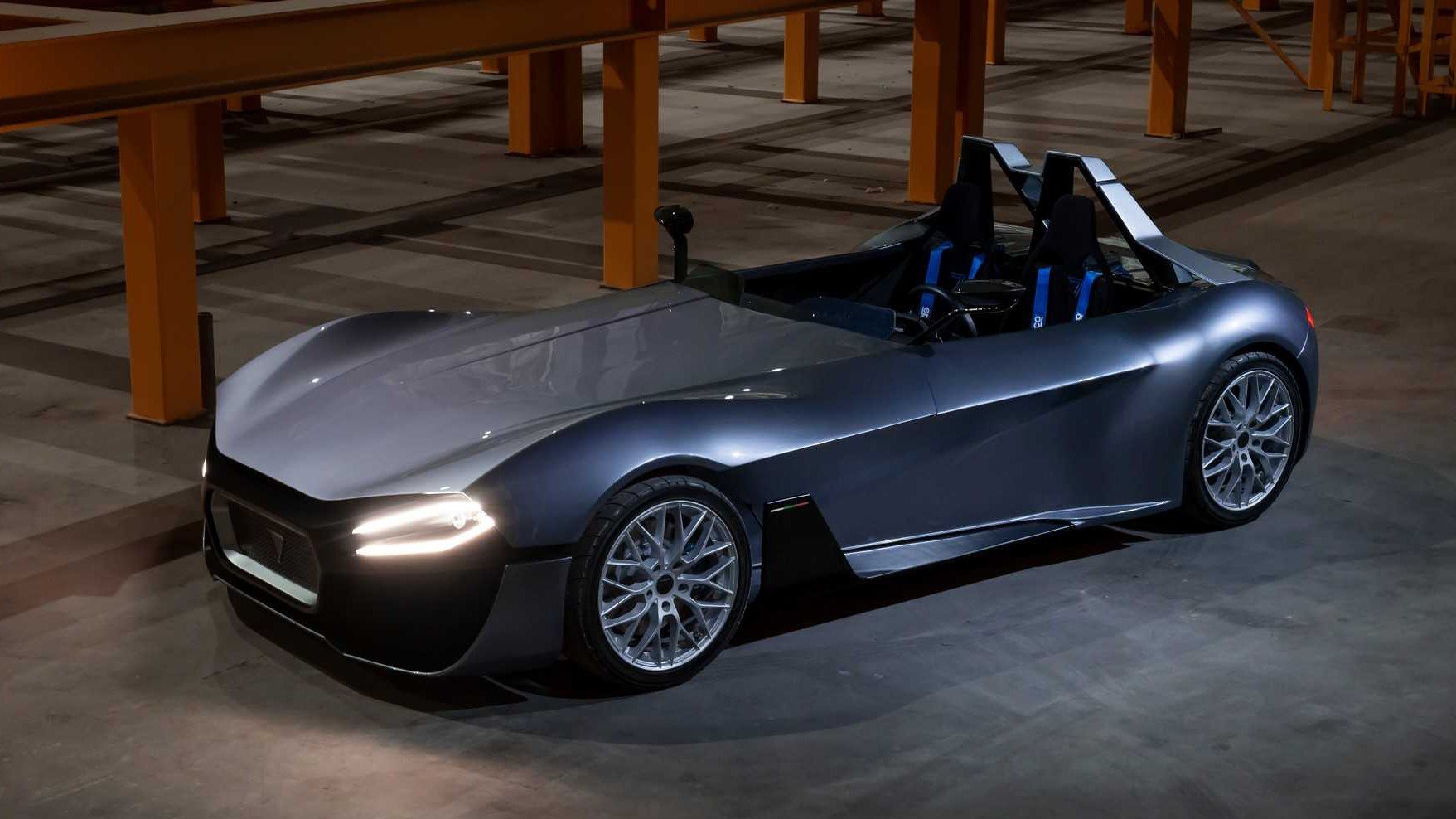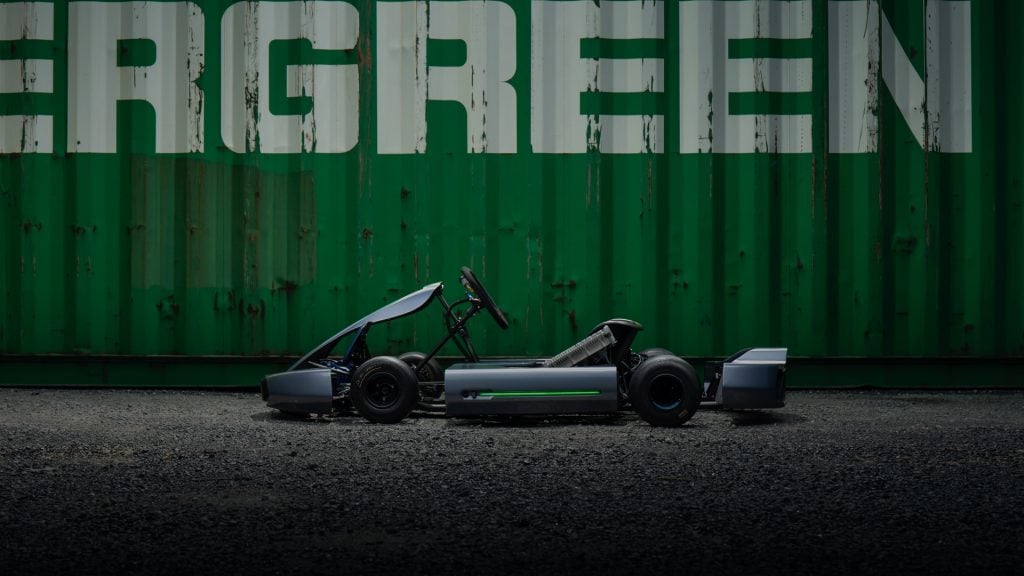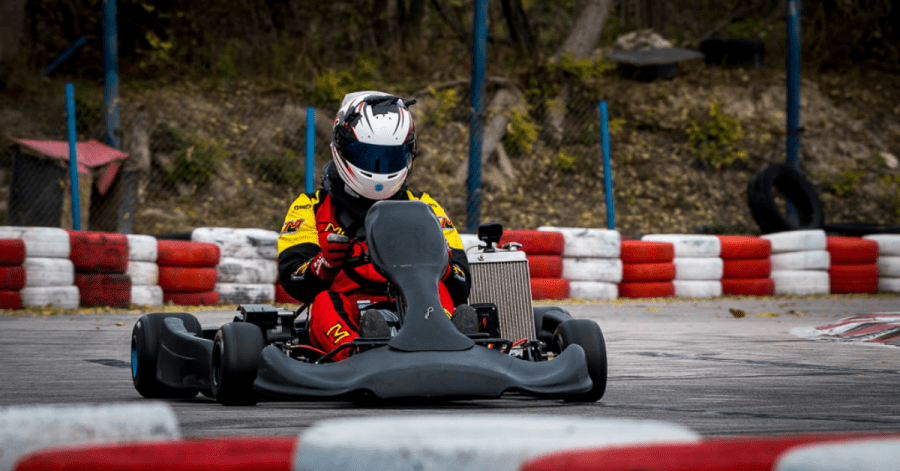Kinetik Automotive, a Bulgarian manufacturer of boutique electric vehicles, launched a crowdfunding campaign to raise money for restarting operations after its headquarters burned down in April 2021. The company aims to raise $115K, $54K (around BGN90K) of which it has already secured. The money will be used for restoring Kinetik Automotive’s production space and purchasing the equipment needed for resuming operations.
The company produces limited custom-designed electric vehicles through 3D printing and parametric modeling.
To learn more about the development of the company and the plans for its recovery, The Recursive talked to Teodosy Teodosiev, CEO and co-founder of Kinetik Automotive.
The rise of custom-made e-cars
Teodosiev shared that the initial idea behind the project was to manufacture an electric Lotus Seven. Produced between 1957 and 1972, the Lotus Seven is a small, open-top sports car with two seats, which has been imitated multiple times on the kit car market.
After deciding to establish a brand of electric vehicles, Teodosiev and the Creative Director of Kinetik, Kostadin Kostadinov, set out to construct their own design, which would be based on the Lotus 7 chassis. The team chose to use computer-driven 3D printing technology, producing each vehicle from a digital model by applying successive layers of materials. The 3D printed parts themselves are heavy, which is why they are used for making a mold. Then, identical ones are produced, but from composite materials – fiberglass and carbon.
“When we bought our 3D printer, it was the largest machine of its type for the Balkans. It took us three years to develop our first Kinetik 07 prototype. In 2019, at Sofia Tech Park, we presented the first Bulgarian electric sports automobile,” Teodosiev recalled.

Kinetik 07, ©Kinetik Automotive
The startup debuted with its all-electric roadster car Kinetik 07. In less than a year, Kinetik Automotive introduced an electric go-kart – Model 27. All vehicle models of Kinetik incorporate a 3D-printed body, an electric motor, and a custom-created design. Kinetik has also developed its own electronics and software in an offer to build an end-to-end service. In 2019, Top Gear recognized Kinetik 07 as “a Bulgarian take on the Tesla Roadster”. On the other end of the rope, Model 27 is recognized by Electrek for a range of characteristics, among which developing a speed of 90 km/h in 3.9 seconds. With its 3.2 kWh battery pack and weight of 97 kg, the go-cart is able to cover distances of up to 11km at full-stack, enough for a karting race. The car was launched for pre-ordering towards the end of 2020, while the production process was planned to start in the spring of 2021.

Model 27, ©Kinetik Automotive
The fire, which broke out due to a short circuit, destroyed all but two of the vehicles Kinetik Automotive had in store.
Drivers of the future
“What the accident did not manage to destroy was our desire to continue with the project, our know-how, and experience within the area. I am motivated by the passion of our team of 12 people, many of whom came from abroad just to work on developing the Kinetik vehicles. We have people who have worked for companies such as Daimler AG and Tesla,” Teodosiev stated. “Kinetik is a new, but very strong company made up of a super passionate team and an excellent leader (Teo) that goes ahead with every project and tries to make them come true. For a designer it is a dream to work in a company like Kinetik since our goal is to turn sketches made on paper into a real product,” Daniel Moreno, Designer at the company, shared. Moreno originates from Argentina and chose to move to Bulgaria and become part of the Kinetik team.
The two vehicles that survived the fire were the go-kart prototype and the first model of another vehicle line Kinetik is working on. “We have not announced it on our website, but for the past couple of months, we have been working towards creating an electrified line of classic cars,” the CEO revealed. Kinetik is planning to renovate the exterior of the cars and alter their mechanics by adding an electric engine and other modern components, such as electronics, contemporary headlights and taillights, and others. This project is part of the trend towards renovating classic cars. Recently, David Beckham acquired a 10% stake in Lunaz, a firm specializing in converting classic cars to electric power.
Teodosiev remains hopeful about Kinetik’s recovery of operations. “Once we recover from the accident, we will continue with our operations and share what we have created in the meantime.”
Looking forward…and abroad
For startups like Kinetik, EU regulations on road safety pose a big challenge that cannot be easily overcome as legalization of new types of vehicles is extremely expensive, Teodosiev shared. That is why Kinetik will be looking to expand abroad in the future, either in the US or another country with less stringent regulations.
As for the future of boutique electric-powered vehicles, Teodosiev believes that the niche will become more popular in the next 5-10 years. “We are embracing new technologies faster than ever before. The change of generations plays a big role in how we perceive innovation. Those who are riding in the backseat right now won’t even get the chance to drive a combustion engine car,” he concluded.








